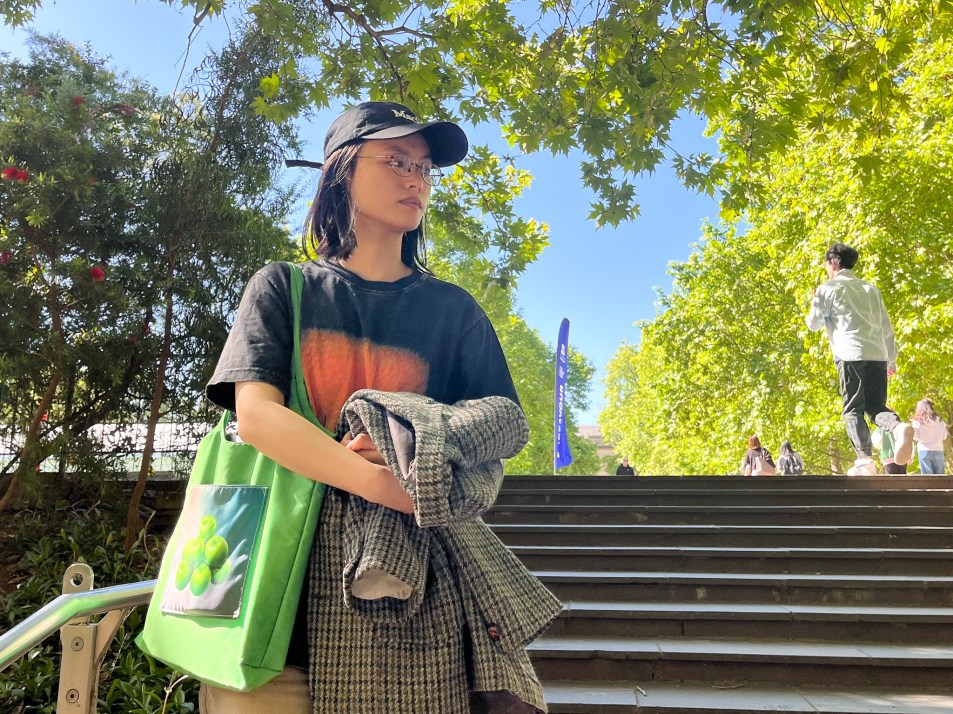
Over 340 international students at the University of Melbourne are seeking a joint refund of tuition fees lost during a pair of week-long strikes by staff which could amount to hundreds of thousands of dollars.
In October hundreds of members of the National Tertiary Education Union (NTEU) conducted strike action across all faculties at the University of Melbourne. This came one month after a seven-day strike by NTEU members of the arts, fine arts and music faculties, and some student support staff.
Qingqing Lu and Pongpong Chen are two student organisers of the joint tuition refund appeal. They are enrolled in the faculty of arts, which was most affected by the strikes.

Originally from China, Lu and Chen said their decision to launch a joint appeal and seek legal assistance was made after their individual efforts to find a fair solution hit roadblocks during talks with the university.
A University of Melbourne spokesperson told Crikey: “[During the strike] we were focused on minimising the impact of union activity on our students. If industrial action interrupted classes or course delivery, alternative delivery arrangements were made.”
“I didn’t see any so-called ‘alternative arrangements’ in my subjects,” said Lu.
Chen said while her lecturer condensed a missed eight-hour intensive into the final semester’s class, the criminology student did not regard this as equivalent.

Lu said the refund group’s origins were a chat she initiated on Little Red Book, a Chinese-language social media platform, on October 19.
“Over 160 students joined the group chat in just two or three days,” she said. The group had grown to over 340 members by November 3, adding 100 members in the previous 24 hours alone.
“We were requesting either a refund or rescheduled classes,” said Lu, who quit her job in China to study media in Melbourne. “I will fight for [compensation for] living expenses if I need to take extra classes.”
She told Crikey that she would need to work for three months in China to save two weeks’ tuition fees.
Chen, who is in her first semester of studying criminology, said that she had four classes cancelled, including the eight-hour intensive class.
The 23-year-old, who works at a sushi restaurant for $24 an hour, told Crikey she had lost thousands of dollars in tuition fees alone.
“My tuition is over $40,000 a year, nearly $5,000 per subject,” she said. “I’m paying about $450 for a two-hour seminar, [so] I lost almost $3,600.
“I would have to stand there for 17 hours to make back what I lost in just one seminar.”
According to the latest annual report from the University of Melbourne, 41% of its students are from overseas, generating 57% of student revenue for one of the richest Australian universities.

Lu and Chen said they supported the academics’ pursuit of better working conditions, but believed students were “sacrificed” in the bargaining war between the university and the union.
Lu told Crikey that she had been seeking a remedy for her loss in the two months since the September strike, first through the university’s student grievance process, then its student appeals process, and then to the president of the University of Melbourne Student Union (UMSU) and its advocacy team.
“They are passing the buck,” Lu said.
Chen said the student union’s advocacy service advised her it had received a number of similar recent enquiries, but those students’ complaints were dismissed by the academic registrar’s office.
“It is safe to say that it would be extremely unlikely that the university would consider fee relief or compensation in any form,” the UMSU advocacy service advised one student in an email seen by Crikey.
UMSU president Hibatallah Adam, who missed at least eight law school classes due to striking staff, told Crikey she supported the overseas students’ joint appeal, but believed the refusal of previous cases meant they had little chance of success.
NTEU University of Melbourne branch acting president Chloe MacKenzie said students should be compensated for missed tuition, especially when the university did not have to pay striking staff during the strike.
Dr Jeff Sparrow, a senior lecturer and NTEU delegate in the school of culture and communications, said students had been short-changed for a long time, not just during the strike.
“Students should be angry with the university,” Adam said. “As an institution that charges international students very high tuition, the quality of education should not be affected.”
A spokesman for the Department of Education said the Higher Education Standards Framework 2021 requires education providers to ensure quality and integrity in education delivery.
Meanwhile, laws covering the provision of education to international students state when education providers are unable to fully deliver their course of study, students can seek refunds or loans from the government-backed Tuition Protection Service.
The Australian Competition and Consumer Commission was contacted for comment, but a spokesperson said the regulator was unable to respond before the deadline.
Chen said she was disillusioned by the university’s response. “I came to Australia with the idea of experiencing Western-style freedom and democracy, but I found it to be just like this,” she said.
Lu said that the university, ranked number one in Australia according to Times Higher Education Rankings, didn’t live up to her expectations in terms of student care or teaching quality.
“I pay tuition. I get my education from the university … This should be a contract,” Lu said. “If not, return my money.”
Gwen Liu is employed as a cadet journalist at the University of Melbourne’s Centre for Advancing Journalism publication The Citizen.








Good article — the sooner university bureaucrats realise their staff are the ones generating all the wealth, the sooner those same academics will start winning strong terms and conditions in their employment.
Quite a simple proposition, has been explained in the past, if large campus universities wish to charge high fees to OS students (& local) they have to offer quality that is evaluated (not just talked about) by their customers.
A local or UK VC complained in the ’90s that university management, now that they are charging fees, cannot just claim quality, i.e. needs to involve students (not necessarily the suboptimal lecturer SELT feedback system, avoids feedback on management…) and personnel… but very hierarchical and sometimes authoritarian management culture.
It seems to be rife across ‘western’ universities — international students are cash-cows. My daughter is currently at University of Edinburgh doing a year-long master’s program and her first week’s classes in Sept were cancelled due to strike action. No word of any compensation or make-up classes. I’m supportive of the academics (I was a non-academic NTEU member for many years) but she worked hard to save up the more than $60,000 for tuition fees and accommodation and should not be ‘sacrificed’ by the university. And now the washing machines in the uni accommodation are broken — there’s plenty of buck-passing going on there, too.
Yes quite right but you did forget to mention that virtually nothing stands in the way of the ‘fat cat’ VC’c and their million dollar plus salary packages. Universities are no longer centers of educational excellence but rather profit seeking corporations top heavy with too many managers on exorbitant salary packages. And too many VC’s who fancy themselves as CEO’s and believe that they are entitled to their bloated pay packs
s
This is what we get for deciding everything should be about money. Barbarism.
I agree. The universities need to pay for this. Its one of the predictable results of neo liberalism. Its a pox and needs to be fixed.
I was a striker at uni of Melbourne and I 100% support students seeking compensation. We lost a massive amount of wages that I fear the University can simply invest back into aggressive bargaining and management claptrap. The students deserve compensation that could draw from the wage payment windfall for managing